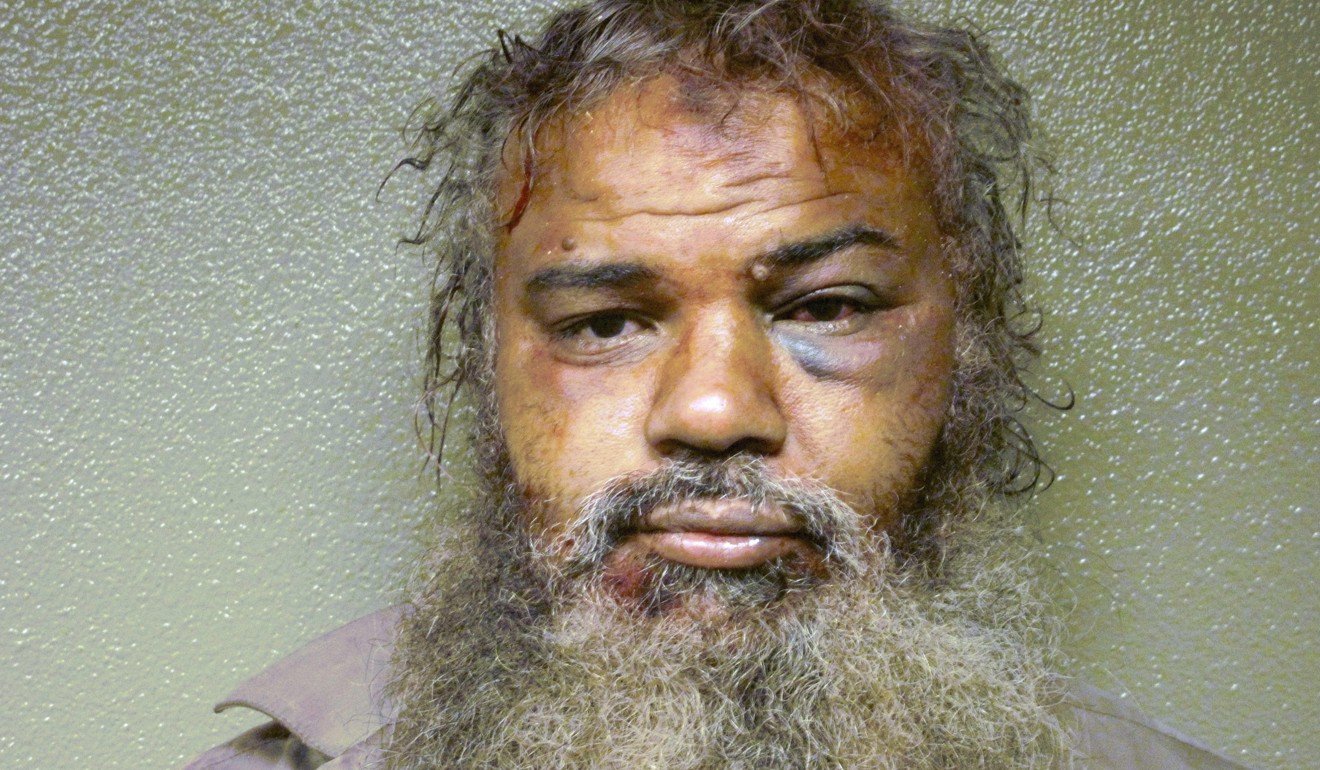
US jury convicts alleged Benghazi ringleader of terrorism, but clears him of murder and most other charges
Ahmed Abu Khattala had been accused of masterminding the notorious 2012 attacks that killed US ambassador, but his defence team said he was a bystander drawn to the commotion
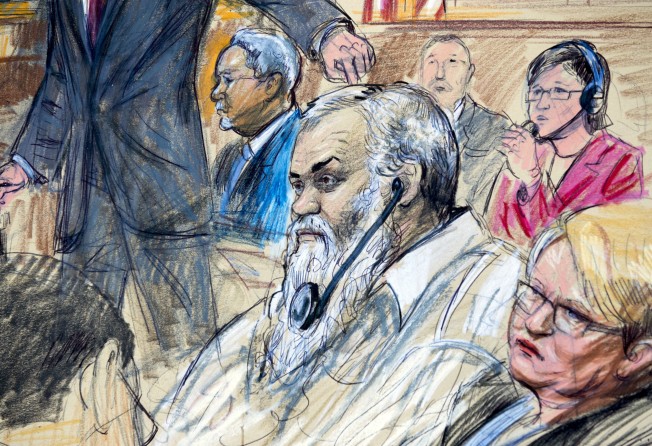
A Libyan militant accused of being a ringleader of the 2012 Benghazi attacks on US facilities was convicted on terrorism charges Tuesday in the assaults that killed US ambassador Christopher Stevens and three other Americans.
But the jury found the militant not guilty of the most serious of the charges, including murder.
The case was seen as a test of detention and interrogation policies developed under the Obama administration to capture terror suspects overseas for criminal trial, with the result likely to factor into assessments of the suitability of civilian courts for terrorism prosecutions.

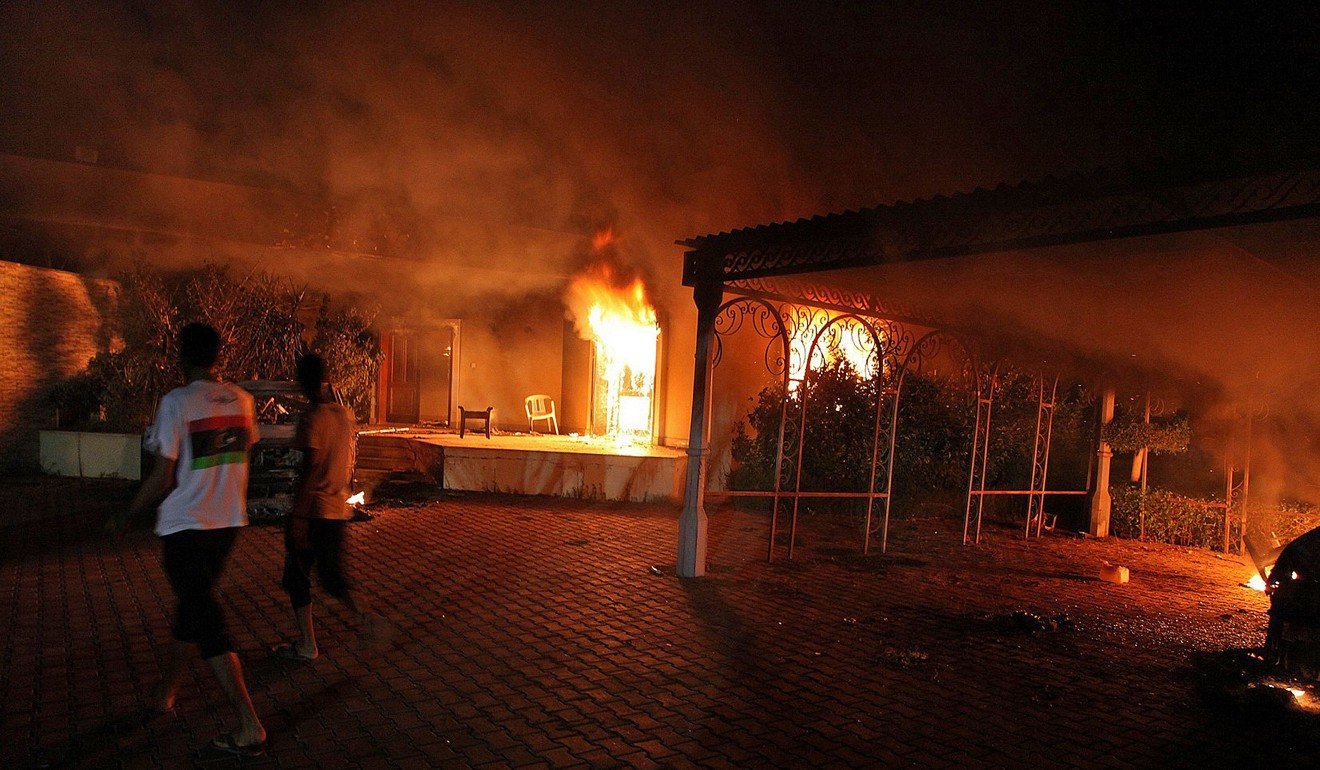
At trial, his defence team said Abu Khattala was drawn to the fiery scene in his hometown as a bystander. They questioned the credibility of three Libyan witnesses who testified they saw or heard Abu Khattala take steps to plan, execute or claim responsibility for the attacks.
Prosecutors presented what they called “indisputable” records linking the times of calls on Abu Khattala’s cellphone and surveillance video from the diplomatic mission attack that they said showed he was at least a key plotter.
Abu Khattala was a leader in an extremist brigade that was part of a militia that sought to establish strict Islamist rule in post-revolutionary Libya. US intelligence assessments have reported that several groups were involved in the attacks, including Abu Khattala’s brigade and the militia.
Stevens and Smith died of smoke inhalation after militants overran the diplomatic compound and set fire to the diplomatic villa. Woods and Doherty were killed on a rooftop at the CIA annex in a predawn mortar strike
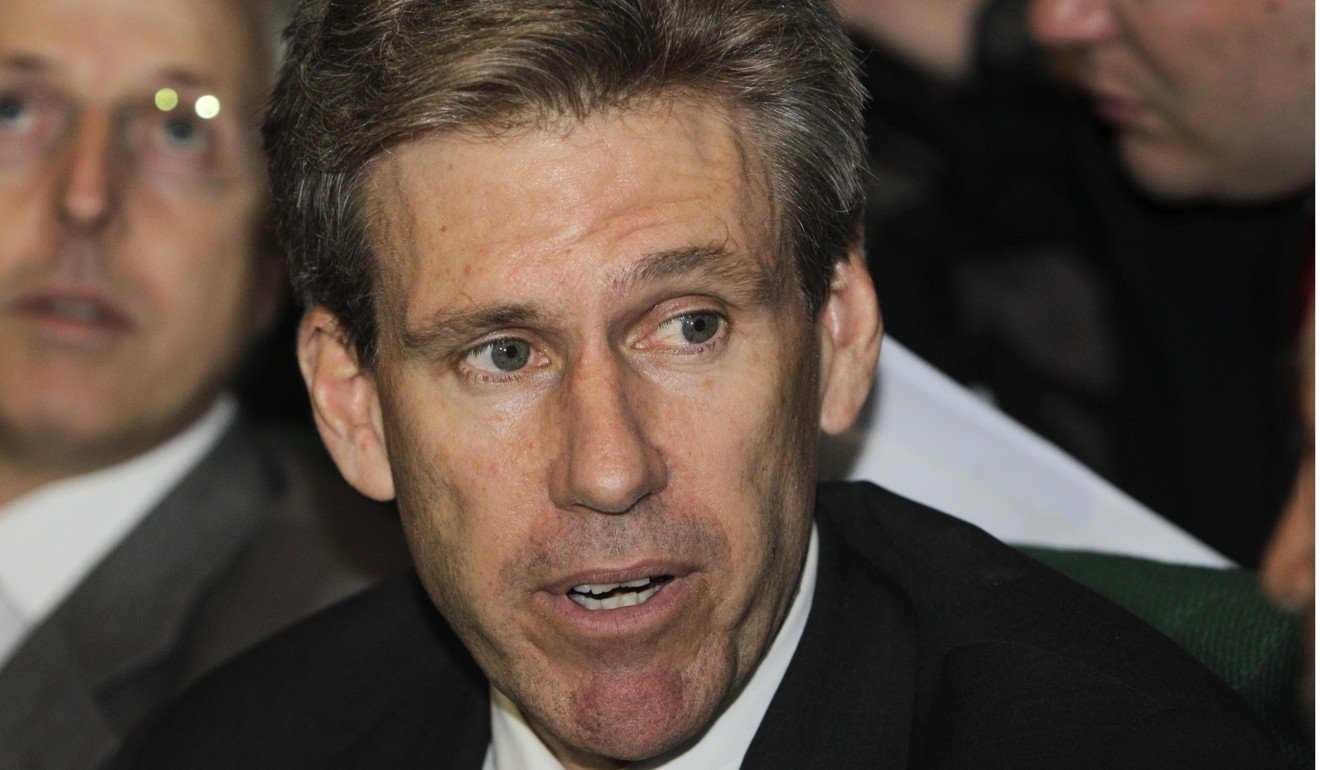
On-board, he was questioned by two teams, the first working in a classified operation to extract intelligence and the second a separate FBI team that collected evidence for his trial under the legal safeguards provided defendants in civilian court.
He was charged with aiding or abetting the killing of the four Americans and wounding two other Americans, providing or conspiring to provide material support and resources to terrorists that resulted in death, destruction of government buildings and property, and a firearms violation.
Abu Khattala has been the only person brought to court in attacks that saw the compound overrun. However, on October 29, during his trial, US authorities snatched a second suspect from Misrata, Libya, for prosecution in Washington. The suspect, Mustafa Al-Imam, has pleaded not guilty.
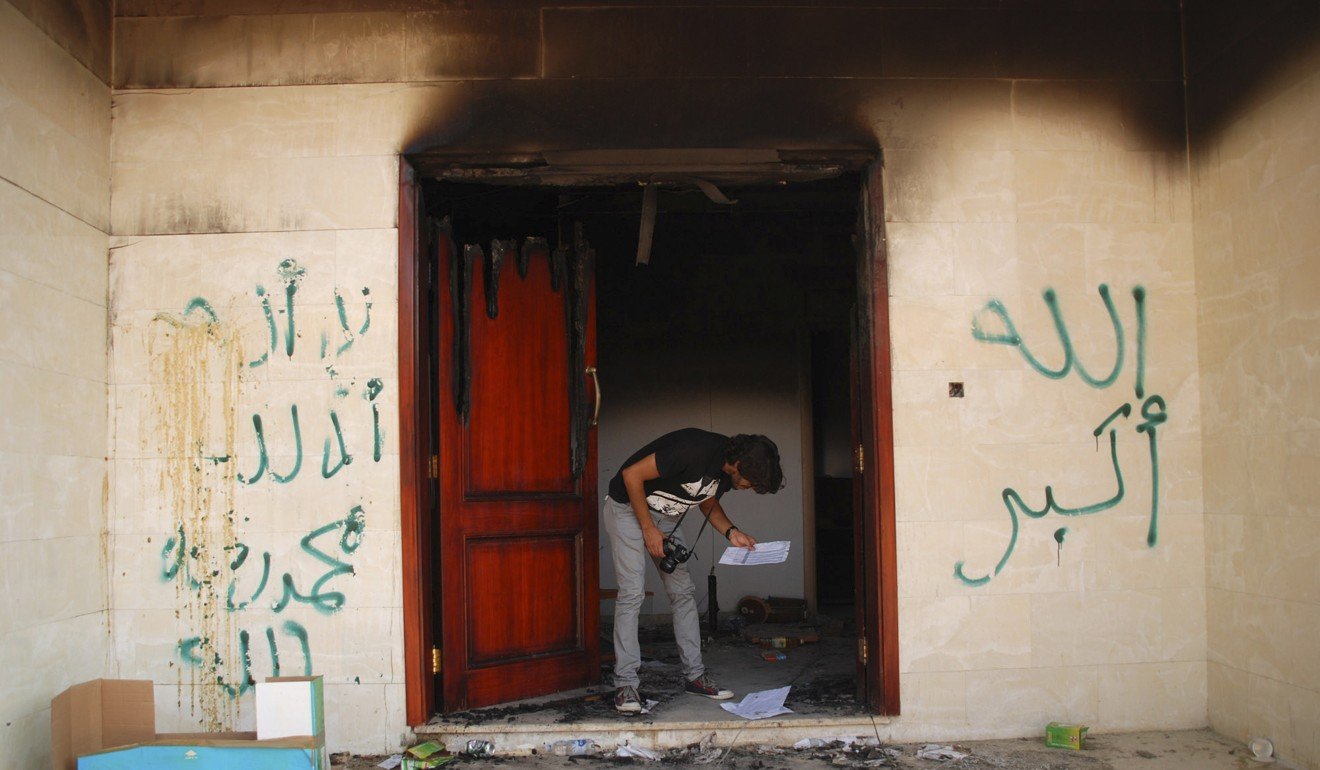
The Trump administration recently showed a willingness to continue bringing terrorism cases in civilian courts, including additional Benghazi suspects. President Donald Trump on October 30 personally announced that “on my orders”, US forces captured the second Benghazi suspect, Al-Imam, to “face justice in the United States.”
Although several Republicans in Congress and conservative analysts called for a military tribunal for Abu Khattala, there were no such calls in Al-Imam’s case.
Brian Egan, a senior White House and State Department legal adviser during the Obama administration, said the trial affirmed the integrity of the US justice system even under extraordinary circumstances.
“That’s important for the rest of the world to see, given the amount of respect our criminal justice system has internationally, and the fact that the Guantanamo Bay military commission system has been so heavily criticised,” Egan said. “This case is really a good barometer for whether procedures the US government put in place will prove to be useful.”
The trial featured dramatic testimony from surviving State Department and CIA operators, some of them taking the stand under fake names and disguised in wigs and moustaches to protect their identities.
Prosecutors also relied heavily on surveillance video taken by overhead drones and diplomatic compound cameras, and cellphone records the government obtained from Libyan authorities that listed call times and numbers but not the call contents.
Key testimony came from three, paid Libyan informants all testifying under pseudonyms.
They included an undercover Libyan businessman who received US$7 million for aiding the US by approaching Abu Khattala as a financial supporter after the attacks, collecting incriminating statements from him, and luring him to his capture. The witness, testifying as Ali Majrisi, said he was present in 2013 when in conversation Abu Khattala, urged to conduct more spectacular attacks like those of al-Qaeda in Iraq, allegedly said of the 2012 attacks, “I intended then to kill everybody [all the Americans] there, even those who were at the [Benghazi] airport.”
Majrisi, who at one point told his secret American military handlers he was willing to kill Abu Khattala himself, rejected a US$1 million payment as “insultingly low” before eventually receiving US$7 million for his help in the investigation.